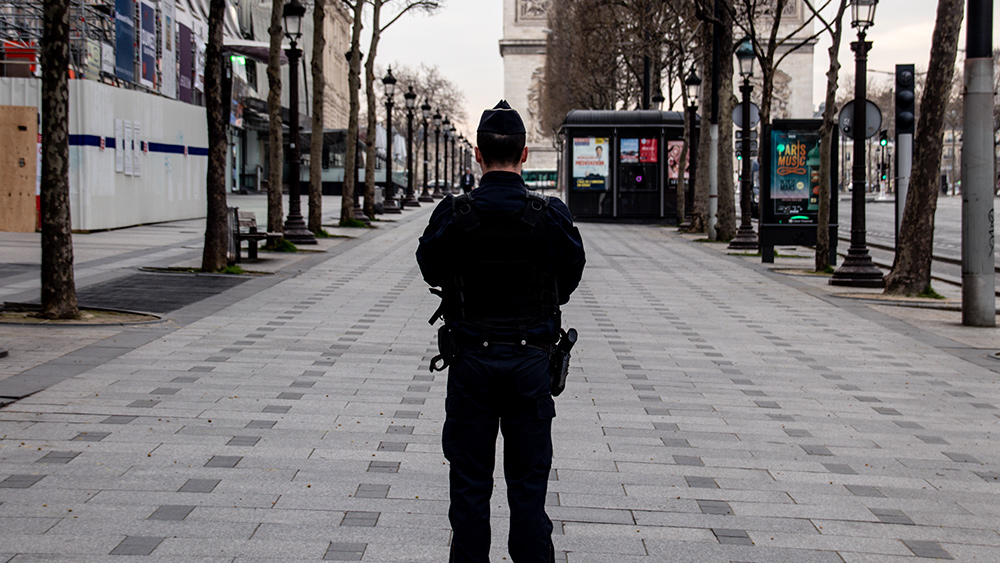SNITCH POWER TRIP: An overzealous reporter in Hawaii has formed a neighborhood spy network to catch COVID-19 quarantine breakers
06/28/2020 / By Tracey Watson

With its natural beauty and amazing weather, Hawaii attracts millions of visitors each year from all across the globe.
While tourism normally provides a welcome and continuous source of revenue for restaurants, hotels and many related industries on the islands, those same tourists could have posed a grave danger to the inhabitants of Hawaii once the COVID-19 pandemic got into full swing and started spreading relentlessly to one country after the other.
Fortunately, proactive steps taken early on have prevented the spread of the killer virus on these paradise islands, and as of 26 June, Hawaii had only 866 confirmed cases of COVID-19.
One of the most effective measures implemented by the Hawaiian government was a mandatory 14-day quarantine for any visitors arriving from out of state. This has ensured that infected visitors have not been able to arrive from other areas and pass the disease on to local residents and other tourists.
Of course, ensuring that all visitors abide by this and other measures requires a lot of manpower and vigilance on the part of the police force, and it is natural that some locals might be worried that one or two infected visitors might slip through the net of surveillance and cause a potentially devastating outbreak of coronavirus in the area.
Some local residents have taken their concerns too far, however, and under the guidance of a former journalist named Angela Keen, have turned into a network of neighborhood spies whose “investigative” efforts seriously encroach on the privacy rights of others. (Related: The US government thinks that fighting coronavirus requires spying on your phone’s data.)
A spy ring that violates the rights of others
As reported by AP News, Keen and her gang of Facebook spies have taken it upon themselves to enforce the state’s two-week quarantine for visitors:
When members of her Facebook group spot tourists posting about their beach trips on social media, Keen zeroes in on photos for clues like license plate numbers she can run down and distinctive furnishings she can match up with vacation rental listings.
Armed with a violator’s name, she scours the internet for information, from criminal records to previous addresses.
Keen proudly acknowledges that she then uses the skills she learned as a reporter to dig deeper and decide for herself whether these visitors pose a risk or come from an area that is a virus hotspot. (Related: UK government now using phone data to SPY on citizens and see if they’re breaking lockdown rules.)
The AP reported further:
So far, volunteer sleuths with her group Hawaii Quarantine Kapu Breakers — “kapu” can mean “rules” in Hawaiian — has helped find about 13 people on Oahu and 22 people on the Big Island who were later arrested by police, Keen said. Members on other islands assisted with other cases that led to arrests, she said.
And rather than ensure that the rights of visitors are respected, local government officials have expressed approval for the “work” done by Keen and her gang.
“I think when you have these instances of individuals blatantly violating the quarantine, you’re naturally going to get this kind of response from the community,” said Sen. Jarrett Keohokalole, a member of the Senate Special Committee on COVID-19. “It’s been a challenge tracking down handfuls of quarantine violators. If that ramps up to hundreds or thousands, we’re going to have to change strategy.”
Surely these challenges should be dealt with within the legal framework of the police force rather than by a renegade band of would-be sleuths who are relentlessly infringing on the rights of others?
For similar stories, visit Surveillance.news.
Sources for this article include:
Tagged Under: coronavirus, covid-19, Hawaii, infections, left cult, Orwellian, outbreak, pandemic, police state, priority, privacy, quarantine, snitches, spying, surveillance, Tourism, travel, Tyranny, visitors















